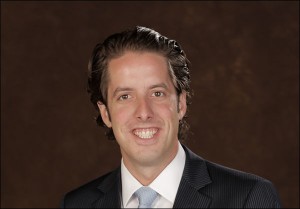ON THE DEFENSIVE: Defense lawyers are too hard on Scalia
By: Anthony Cotton//October 6, 2014//

Justice Antonin Scalia has been the target of considerable invective, largely because of his support for the death penalty.
That topic has come into renewed focus given that two men in North Carolina recently were freed after DNA evidence cast doubt on their convictions. The defendants, Henry McCollum and Leon Brown, were convicted roughly 30 years ago of a brutal rape and murder of a young girl.
Scalia, in a different decision, compared their impending execution by lethal injection as “enviable and quiet” compared with the death of the 11-year-old victim.
Most defense attorneys oppose the death penalty, primarily because they understand the risk that an innocent person could be executed. Consequently, when McCollum and Brown were freed, the hatred toward Scalia spewed forth primarily from the defense bar.
For reasons that are unclear, no Supreme Court justice draws the ire of defense attorneys more than Scalia. He frequently is portrayed as a rigid, pro-prosecution conservative who is reflexively anti-defendant.
That simplistic characterization is startlingly wrong.
Scalia has little trouble ruling in favor of criminal defendants as long as his originalist interpretation of the Constitution supports the ruling.
In United States v. Booker, Scalia joined with the majority, in part to strike down the binding nature of federal sentencing guidelines. That decision resulted in tens of thousands of defendants facing significantly reduced prison terms, given that judges were granted more flexibility to depart downward from the guidelines.
In Crawford v. Washington, Scalia wrote the majority opinion giving criminal defendants an expanded right to confront their accusers. Countless prosecution cases have been dismissed since 2005 because of Scalia’s decision in that case. Or, put another way, countless guilty defendants have escaped punishment because of that ruling.

In Fourth Amendment cases, Scalia has been a strong advocate for privacy. In Arizona v. Gant, Scalia joined with the majority to upend the so-called “search incident to arrest doctrine.” His decision drastically limited officers’ ability to search vehicles.
As technology lets officers engage in more intrusive behavior, Scalia has repeatedly ruled against the police. He held in United States v. Jones that attaching a GPS device to a vehicle and using it to monitor movements constitutes a search.
Scalia wrote the 5-4 decision in Florida v. Jardines, finding that police illegally searched a home when they brought a drug dog to sniff the door. In April, Scalia dissented in Navarette v. California, a case that now lets officers stop drivers based on an anonymous tipster.
If so many defense lawyers weren’t blinded by their hatred of Scalia, they might realize that he is an ally of criminal defendants more often than not.
Legal News
- FTC bans non-competes
- Gov. Evers seeks applicants for Dane County Circuit Court
- Milwaukee man charged in dismemberment death pleads not guilty
- Democratic-led states lead ban on the book ban
- UW Madison Professor: America’s child care crisis is holding back moms without college degrees
- History made in Trump New York trial opening statements
- Prosecutor won’t bring charges against Wisconsin lawmaker over fundraising scheme
- Republican Wisconsin Senate candidate says he doesn’t oppose elderly people voting
- Vice President Harris to reveal final rules mandating minimum standards for nursing home staffing
- Election workers fear threats to their safety as November nears
- Former law enforcement praise state’s response brief in Steven Avery case
- Eric Toney announces re-election bid for Fond du Lac County District Attorney
WLJ People
- Power 30 Personal Injury Attorneys – Russell Nicolet
- Power 30 Personal Injury Attorneys – Benjamin Nicolet
- Power 30 Personal Injury Attorneys – Dustin T. Woehl
- Power 30 Personal Injury Attorneys – Katherine Metzger
- Power 30 Personal Injury Attorneys – Joseph Ryan
- Power 30 Personal Injury Attorneys – James M. Ryan
- Power 30 Personal Injury Attorneys – Dana Wachs
- Power 30 Personal Injury Attorneys – Mark L. Thomsen
- Power 30 Personal Injury Attorneys – Matthew Lein
- Power 30 Personal Injury Attorneys – Jeffrey A. Pitman
- Power 30 Personal Injury Attorneys – William Pemberton
- Power 30 Personal Injury Attorneys – Howard S. Sicula








